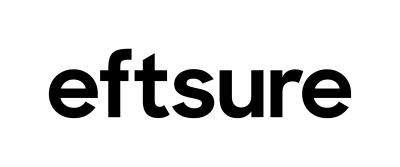Eftsure Releases Free Guide on Implementing ACH Payments With Added Security Measures

SYDNEY, July 17, 2024 (Newswire.com) - Many businesses still rely on checks to process payments – even as checks remain the payment method most vulnerable to fraud. Automated Clearing House (ACH) credits offer faster, less expensive, and, in some ways, safer electronic payment. Now, Eftsure has released “A CFOs Guide to ACH Payments,” a free, ungated guide that shows finance leaders how to leverage the efficiency of ACH while also gaining security advantages over other payment systems.
Eftsure is the creator of end-to-end B2B payment protection software that provides risk mitigation for accounts payable and receivable, vastly reducing the possibility of payment error, fraud, and cybercrime. Its solution safeguards over $216 billion in payments annually.
Payment protection has become increasingly important as financial fraud surges in all categories of payments. Fully 80% of organizations reported attempted or actual payment fraud incidents in 2023, according to the Association for Financial Professionals’ annual report.
Eftsure’s guide is designed to help financial professionals integrate ACH payments into their businesses and demonstrate that – if approached with security in mind – ACH can be more secure than other payment methods.
"There's a persistent perception that checks are safer than electronic payments, but we know from the data that they carry just as many, if not more, risks – not to mention the higher chances of human error during manual, paper-based processes,” said Jon Soldan, Global CEO of Eftsure. “We believe this guide will help finance leaders understand how to achieve greater speed and security through ACH credits."
ACH payments are a type of electronic funds transfer made through the U.S.-based Automated Clearing House network, which handles credit transfers like payroll direct deposits, debit transfers and bill payments. ACH transfers are processed in batches at specific intervals, reducing costs and increasing reliability.
A major 2022 study by the U.S. Federal Reserve reported that ACH transfers had the highest total monetary value of any non-cash payment method, about $92 trillion per year. Moreover, the number of ACH payments is also growing while the volume of checks is declining, the Fed reported.
Despite the efficiency and speed of electronic payments, many businesses remain tied to checks. They have been slower to adopt ACH, possibly because of the high number and profile of business email compromise cases: the Association for Financial Professionals study found that in 2023, for the first time, ACH credits were placed ahead of wire transfers as the payment method most often targeted in BEC attacks (47% vs. 39%).
However, checks also are frequent BEC targets, making up 18% of cases, and continue to be the payment method most often exploited in fraud cases – nearly two out of every three (65%) organizations reported check fraud cases.
Eftsure’s guide lays out a detailed approach for organizations considering switching to ACH payments. It explains how the ACH system works and the advantages it offers and provides a step-by-step process for financial teams to follow when implementing ACH to pay the organization’s vendors. Importantly, it also guides how to make ACH payments more secure.
“The ACH system gives businesses a faster, more efficient way to make payments, but all digital ways of working can expose us to greater cybersecurity risks,” Soldan said. “Eftsure’s mission is to help businesses’ financial systems become more secure as they adopt these new processes, and our guide offers CFOs and their teams a road map to move forward.”
About Eftsure
Eftsure is a market leader in payment fraud prevention. Specifically designed for businesses, our end-to-end solution safeguards more than $216B in B2B payments per year. Our mission is to build a safer business community. With a large and continuously growing database of verified supplier details (the only one of its kind), we use multi-factor verification to give businesses greater knowledge and control over onboarding suppliers, receiving invoices, and making payments. In short, we ensure our customers never pay the wrong people.
Source: Eftsure
